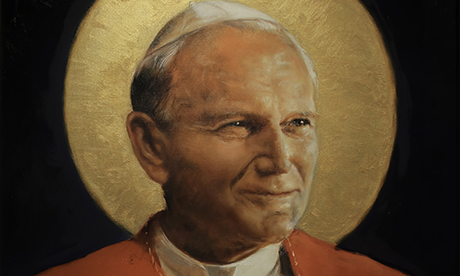Is John Paul II really a saint?
It may sound like a strange question, given that he was canonized in 2014. But it is one that some people are asking after a Polish television broadcast an investigative report that criticized the late pope for his alleged mishandling of clergy sex abuse cases from 1964-1978 when he was archbishop of Krakow.
Is this enough to call into question John Paul’s holiness?
Perhaps we should distinguish between the levels.
After having long denied the importance of sexual abuse in the Church, the Polish bishops are just beginning to take into account the extent of this phenomenon and its systemic character.
We must therefore wait for real judicial, ecclesial and historical work to be carried out.
That Cardinal Karol Wojtyla minimized the seriousness of the events and sent criminal priests from parish to parish in the 1970s is symptomatic of his generation, subject to other elements that might be discovered.
Can a pope be a saint?
In reality, to be a saint does not mean to be perfect or without defects.
Religious history has amply demonstrated this…
But the question remains whether the Polish pope should have been canonized so quickly, without respecting the normal waiting period. And that is for other reasons beyond the way he ran the archdiocese of Krakow.
The question is whether popes should be canonised.
At the very least, the Church should move with caution.
To declare that someone who managed and became the incarnate reality of the Holy See is a saint, necessarily mixes politics – and even ideology – with holiness.
Over the past century, it has become a “fashion” to canonise popes.
Before that, the phenomenon was relatively rare.
Deciding whether or not to canonise a dead pope is always a matter of politics that is linked to his living successor.
Thus, when Pope Francis canonized Paul VI in 2018, he did so to reinforce the message of Vatican II.
Of course, the Church canonizes a person, not a pontificate. And John Paul II was a remarkable personality. But it is still difficult to separate the two, and there are pressure groups in the Vatican that seek to capitalise on the beatification/canonization of this or that pope for reasons that are more political than spiritual.
Manipulation of the sainthood process
More broadly, the trend towards papal canonisations is a sign of both the papacy’s increased power since the end of the 19th century, and a more recent lack of confidence in the strength of Catholicism.
The rush to canonise popes is all the more paradoxical since saints were originally proclaimed by popular devotion. And the Vatican has even imposed strict protocols (such as diocesan inquiries, waiting periods, the proof of miracles..) to avoid a manipulation of the sainthood process.
Today, we should probably also look at Catholicism’s tradition of declaring saints, but not in order to suppress it.
Having saints is a beautiful heritage of popular Christianity, a way to help the “people” feel more connected to an institution that is sometimes too distant by incarnating it in a form of human proximity.
One is not a saint by what he or she does, but by the qualities of faith that person has manifested.
However, if there is a connection between sexual abuse and holiness, this is undoubtedly where it lies: the crisis we are going through reveals in an acute way the danger of wanting to create “superheroes” in Catholicism according to a faulty understanding of holiness.
We desperately seek out”pastors” and blindly follow “founding fathers”, at the risk of losing all critical thinking.
The resulting infantilization has undoubtedly been one of the causes of the phenomena of control that we have discovered in recent years.
So, saints, yes… as long as we remember that this is what we are all called to be!
- Isabelle de Gaulmyn is a senior editor at La Croix and a former Vatican correspondent.
- First published in La-Croix International. Republished with permission.
